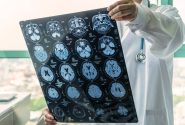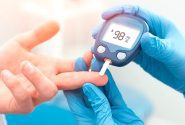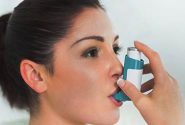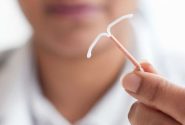(HealthDay News) — (Tasrir) — In all, it has claimed nearly 7 million lives worldwide, according to the World Health Organization.
COVID-19 is an abbreviation for coronavirus disease 2019. To prevent and treat this highly contagious infection, it’s important to be prepared. This overview will discuss COVID causes, symptoms, diagnostic tests and most up-to-date treatment options, including how to identify and manage long COVID.
What is COVID-19?
COVID-19 is an infection caused by the SARS-CoV-2 virus, a type of coronavirus. (The common cold is also caused by a coronavirus.) It mainly spreads through air and surface droplets and particles that people exhale, according to the U.S. Centers for Disease Control and Prevention.
About 10% of people who have had COVID had developed a condition known as long COVID as of April 2023, according to the U.S. National Institutes of Health (NIH). It is marked by a set of physical, cognitive and mental health problems that occur after the initial infection is over, Yale Medicine notes.
COVID-19 causes
The SARS-CoV-2 virus is stealthy. Research published in the journal Chemical Science highlights how it binds to different protein receptors on cells, causing a COVID-19 infection.
“The virus that causes COVID-19 uses ACE2 as the front door to infect cells, but we’ve found that if the front door is blocked, it can also use the back door or the windows,” researcher Peter Kasson, an associate professor of molecular physiology at the University of Virginia, explained in a university news release.
COVID-19 symptoms
Some people experience no COVID symptoms at all and are considered asymptomatic. For those who do, the CDC says symptoms can be wide-ranging and appear two days to two weeks after infection. They include:
-
Fever
-
Chills
-
Difficulty breathing
-
Congestion
-
Cough
-
Sore throat
-
Loss of taste
-
Loss of smell
-
Headache
-
Muscle aches
-
Fatigue
-
Nausea
-
Diarrhea
-
Vomiting
Long COVID symptoms
Like COVID symptoms, long COVID symptoms can be diverse. Yale Medicine and the CDC say they may include initial COVID symptoms, plus:
-
Chest pain
-
Stomach pain
-
Memory loss
-
Difficulty focusing
-
Confusion
-
Dizziness
-
Heart palpitations
-
Sleep problems
-
Rash
-
Post-Traumatic Stress Disorder (PTSD)
-
Depression
-
Anxiety
-
Hair loss
-
Loss of appetite
-
Tingling sensations
-
Symptoms that worsen after mental or physical activity
How long does COVID-19 last?
A majority of people recover from COVID within a few days to a few weeks, according to the CDC. If you are still experiencing symptoms four weeks after infection, your doctor may diagnose you with long COVID.
How long are you contagious with COVID-19?
People who are asymptomatic (no symptoms) or have mild to moderate COVID typically aren’t considered contagious longer than 10 days after being infected, according to the CDC. If you have a more severe case of COVID, you could be contagious for up to 20 days.
COVID-19 testing
If you think you might have COVID, the CDC says the best time to test for it is:
-
Immediately, if you’re symptomatic.
-
Five full days after you were exposed to the virus if you’re asymptomatic.
There are a few different types of COVID tests. Antigen tests, sometimes called rapid tests, are available over the counter for at-home testing. While they are fast, with results in 15 to 30 minutes, they aren’t considered as accurate as a PCR test, which is the “gold standard” diagnostic tool.
A PCR test detects genetic material of the COVID-19 virus using a nasal, throat or saliva sample. It’s typically done in a doctor’s office or clinic and sent to a lab for analysis, with results available in about three days.
COVID treatment
Medication and monitoring symptoms are linchpins of COVID treatment.
COVID-19 medications
COVID medicine includes anti-inflammatory and antiviral drugs, according to the CDC and the Cleveland Clinic. Common antiviral drugs that help reduce the amount of the virus in your body include:
-
Nirmatrelvir with ritonavir (Paxlovid)
-
Molnupiravir (Lagevrio)
-
Remdesivir (Veklury)
Immunotherapies to supplement your own infection-fighting antibodies may also be used in certain FDA-approved situations. These include patients with compromised immune systems who have continuing symptoms after antiviral treatment.
COVID-19 self-care tips
If you have a mild case of COVID and are recovering at home, the Cleveland Clinic’s Dr. Lulette Tricia Bravo recommends these steps in a clinic article:
-
Get plenty of rest
-
Stay hydrated
-
Take acetaminophen or ibuprofen to ease your symptoms
-
Monitor your symptoms closely
COVID-19 vaccines
COVID vaccines are available for both adults and children. It protects against more severe forms of the disease, according to the CDC.
Vaccines with emergency use authorization or approval from the FDA are made by Pfizer-BioNTech, Moderna and Novavax.
In September 2023, the FDA approved a booster shot with coverage for new variants. New vaccines are expected to be made available every year for changing variants, similar to the flu vaccine.
“This is a vaccine-preventable illness,” Bravo said in the article. “And vaccines have prevented millions of deaths worldwide since they became available.”
Living with COVID-19
While COVID-19 may be temporary, some people may experience long COVID, which can be chronic. Yale Medicine and the CDC note that for people with long COVID, it’s important to make a plan with your doctor to treat your symptoms.
If you’d like to make an appointment to discuss post-COVID symptoms, the CDC offers a supportive guide to help you prepare.

